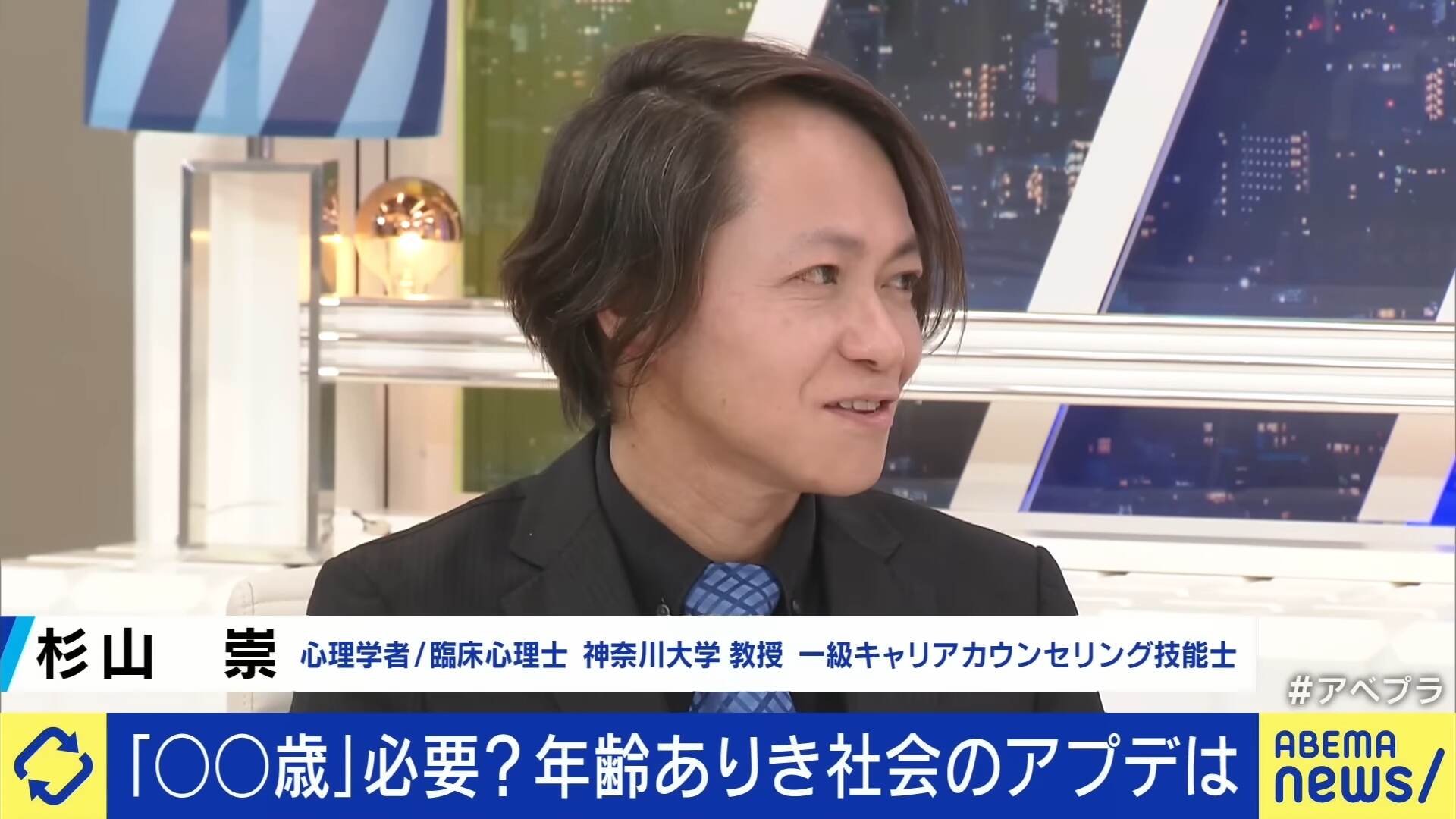Many age-based rules dominate our society. Some mandates make sense, while most admittedly don’t—but as the law-abiding, tax-paying citizens we are, we follow most of them regardless.
You can neither drink nor drive until you’re 18. When running for the highest government position, educational degrees and/or professional licenses are optional, but being at least 40 years old is non-negotiable. Plus, you *need* to retire upon reaching 65.
Some kiddos are also told to “act their age” whenever they behave a bit too precociously, and the same thing happens to adults who refuse to let go of their playful attitude. Last but not least, you should get your shit together in your 30s, or you would otherwise be considered a failure.
And something along these lines was what triggered Jackie—a 39-year-old male from Kyoto, Japan—to identify himself as a “trans-age” individual.
The catalyst? A toxic workplace
In May 2023, Jackie disclosed on Japanese reality show Abema Prime that everything started with a rather unpleasant encounter at work about seven years ago. A higher-up scolded him in a seemingly condescending manner: “How can you not know the basics at your age?”
If you’ve ever been on the receiving end of such remarks, you would know that it was the kind of microaggression that would (most probably) leave a negative impact on your psyche. It would stick with you for a long time—like a particularly annoying earworm—but you’d do nothing about it and just let it fade on its own.
Well, this wasn’t the case for Jackie. Instead of merely stewing in frustration and brushing it off like us mortals would, he embraced a new “age identity” that may not match the numbers in his birth record, but resonates perfectly with his personality.
Living the double life (kinda)
Despite being born in 1984, he now identifies as a 28-year-old. While it was a choice that would likely fuel a train of mockery, Jackie insisted that he felt most himself at that age.

Still from Abema Prime/YouTube
“I felt a strong desire to stay young and relevant—and I found that being 28 is when I’m most comfortable,” Jackie told Abema Prime. “It’s an age where I can balance maturity with youthfulness.”
Let’s set the record straight, though: Jackie hasn’t entirely gone rogue with his age. Legally speaking, he is 39 years old, and he acknowledges that on official documents and resume. It’s just that when it comes to living his daily life and navigating societal expectations, he is committed to maintaining his self-perceived age.
Okay, but WTH is trans-ageism?
The concept is pretty straightforward. Trans-age people identify with an age that feels more in tune with their inner selves than the one society slaps on them based on the number of trips they’ve made around the sun. It’s about embracing a more fluid approach to age rather than strictly adhering to the rigid timeline of life.
Come to think of it, we live in an era where age determines a whole set of expectations, limits, norms, and stereotypes. Japan, alongside many other countries, tends to put a premium on accumulated experience and wisdom that comes with age.
But in Jackie’s perspective, chronological age is nothing but a tally of years we lived since birth. It does not—and should never—define our abilities, our potential, or the essence of who we are as humans. And he honestly has a point. After all, age is just one of the many facets that make up our being.
An expert’s take on the gap
As we dive deeper into the phenomenon, we’re confronted with a question: Is there any psychological explanation behind it?
Some social media users say that trans-ageism is only an excuse to avoid adult responsibilities, like how trans father Stefonknee Wolscht left her wife and seven kids in 2015 because she didn’t want to “think about big people stuff.”
But psychologist and Kanagawa University professor Dr. Takashi Sugiyama sheds some light on the psychological nature of trans-ageism.
In the same Abema Prime episode, Dr. Sugiyama labels Jackie’s case as a potential instance of “age dysphoria.” It draws parallels to gender dysphoria where somebody’s gender identity does not align with their assigned sex at birth—but instead of gender, it’s their mental (and emotional) age that does not sync with their chronological one.
Modern technology and our ever-increasing access to information make it easier to compare ourselves to others, and sometimes, these comparisons can be stressful. One scroll through social media, and we would instantly be bombarded with images and stories of people achieving remarkable things at certain ages—which can fuel feelings of inadequacy or a sense of falling behind. It’s harder to escape the numbers game when they’re a click away.

Still from Abema Prime/YouTube
The psychologist further explains that Jackie’s journey isn’t as unusual as it seems. In fact, it highlights something that a lot of us have probably already experienced but never quite realized—the occasional disconnect from our actual age.
We all have those moments when we feel younger or older than our years suggest. Sometimes, it’s that childlike wonder while watching the reboot of your fave childhood series. Other times, it’s the weight of your breadwinner responsibilities that bear down on you and make you feel a decade older.
Dr. Sugiyama suggests that trans-age individuals like Jackie are using this gap to shape their self-image and reinforce their self-perception. It’s a way of reclaiming control over how they see themselves in a society that always tries to pigeonhole people based on their age.
Who knows, maybe we all feel this way to some extent. Jackie (and a few others) just chose to boldly embrace it.
Read more:
Asexuals aren’t real (and other myths about being ace)
Trans Filipinos are the protagonists in these 6 films
My video call with Nadine Lustre is a masterclass on growth
Still from Abema Prime/YouTube
























Comments